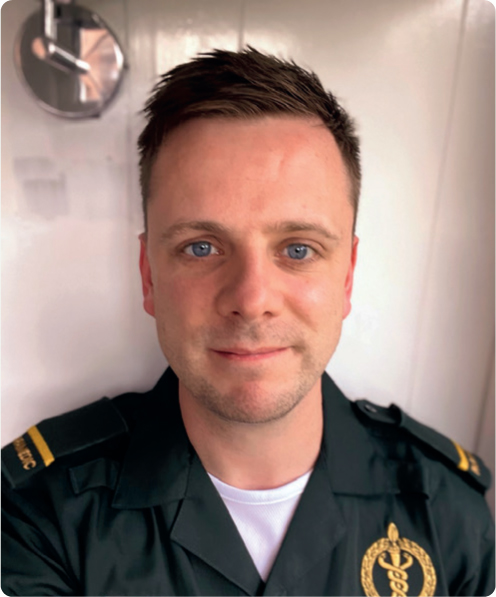
I have never been one for ignoring the ‘pink elephant in the room’, and with just under 8 months remaining, my time as a newly qualified paramedic (NQP)—that 2-year period of consolidated learning—is drawing ever closer to its end, and with that I can't help but wonder…what's next?
Against the backdrop of a turbulent 2 years across the ambulance service—long waits at hospital, late finishes, and a seemingly never-ending pandemic—there is an overwhelming sense among many on the front line that something has to give. Experienced paramedics are continuing to leave the service every day for emerging opportunities that afford a better work-life balance, and those of us that remain question how much longer we can go on like this. As an NQP, I am not saying that I am ‘burnt out’—certainly a bit crispier around the edges—but for my own mental health and wellbeing, I know my next 2 years need to be different.
As a means to be proactive in this regard, I recently started a Masters degree (MSc) in Critical Care, and I am helping to create continuing professional development (CPD) opportunities for others to learn; two areas that I am particularly passionate about. Both of these endeavours have taught me that my role, and continued education as a paramedic do not have to end when I step off the ambulance, nor do they have to be confined to the ambulance service. They have introduced me to concepts that are reflected within NHS England's ‘Four Pillars of Advanced Clinical Practice’, and identified possible goals to work towards as I continue to progress beyond NQP.
Another consideration to enhance, and diversify my practice is that of mentorship. While carrying this out in an official capacity is not possible during the NQP phase, I do enjoy having students on my shifts. It provides an opportunity to share knowledge, learn from each other, and provide reassurance for the student as they gauge the differing levels of confidence and capability between newly qualified and experienced clinicians as they transition within their own practice.
While such opportunities may enhance professional development, recent events and personal circumstance have reinforced to me the importance of self-care, and looking out for those around us—we are only human after all. It is easy to forget this at times when we are so frequently dealing with other people's crises as paramedics, but on a basic level, we can't help others if we don't help ourselves. How we aim to achieve this equilibrium outside of our professional lives will vary, and a prescribed course of yoga does not always work for everyone. I personally take a lot from surrounding myself with friends, both inside and out of the ambulance service. They keep me grounded, they build me up, and provide an honest prospective that I know will positively contribute to my confidence as I move forward in my career as a paramedic.
Being a paramedic is not easy; if it was, everyone would do it; and while it may not be ‘the dream’ that channel 4 promised me—it sure is a good one. I have the privilege of providing compassion and care to people when they fear the worst, and by striving to achieve diversity and progression within my own practice and personal life, I can continue to do just this long after my time as an NQP has ended. I also get to drive around all day with my friends on blue lights and sirens—you can't beat that!

